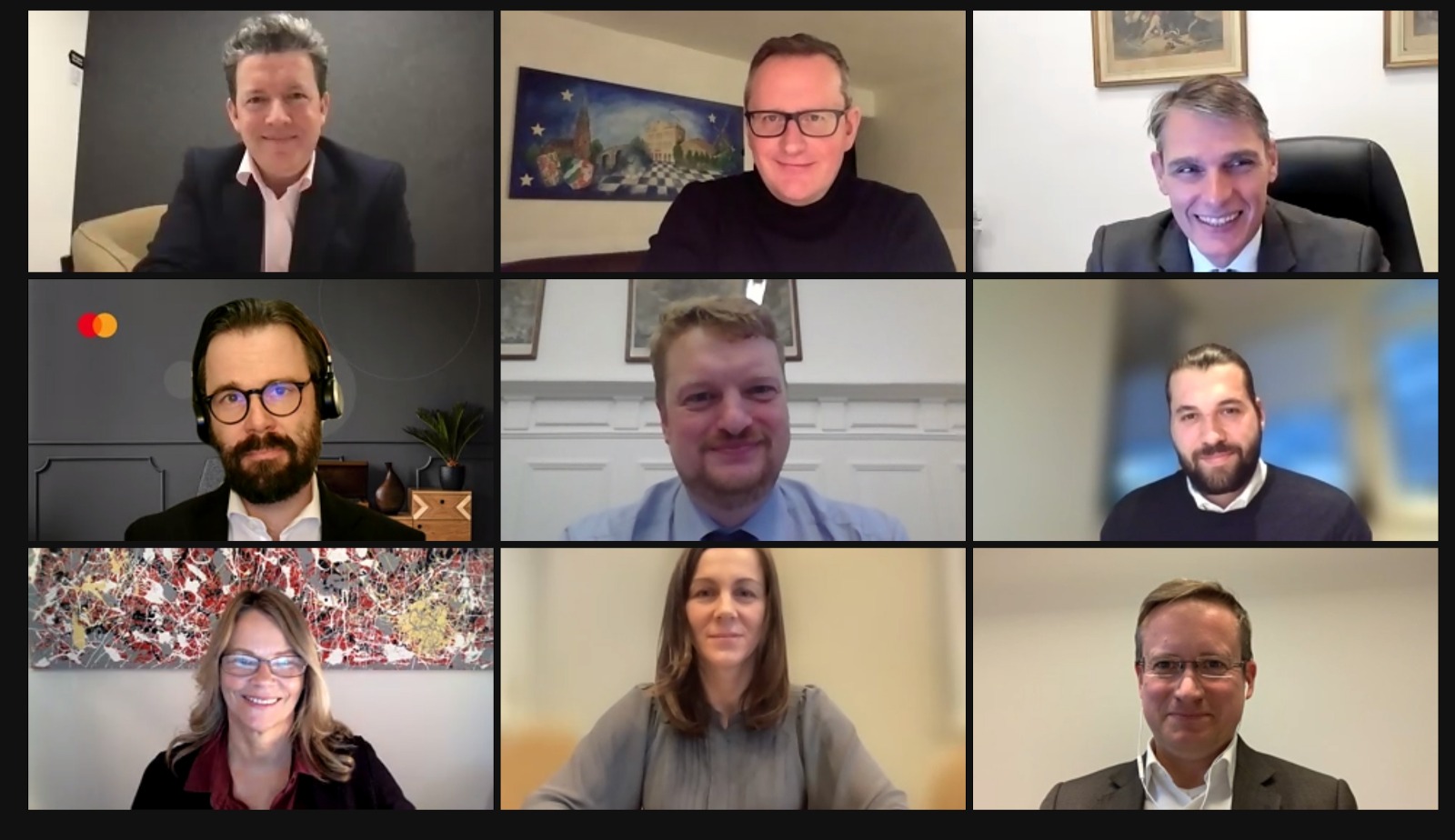Markets in Crypto-Assets Regulation (MiCA): Unlocking a Safe and Prosperous European Digital Assets and Payments Market

On Wednesday November 30th, SME Connect organized a virtual Roundtable titled “Markets in Crypto-Assets Regulation (MiCA): Unlocking a Safe and Prosperous European Digital Assets and Payments Market”.
The workshop was co-hosted by Stefan Berger MEP, ECON, EMPL & ENVI Committees, Rapporteur on MiCA, and Ondrej Kovarik MEP, ECON, TRAN, LIBE & FISC Committees, Shadow Rapporteur on MiCA, Chair of Access to Finance for SMEs Working Group in the EP, Co-Chair, both co-Chairs of SME Connect’s Fiscal, Financial & Monetary Policy Working Group, and moderated by Stefan Gehrold, MEP 2018-2019 and SME Connect’s Special Advisor for Economy and Fiscal Policy as well as Horst Heitz, Chair of SME Connect’s Steering Board. The panel was composed of Helen Köpman, Head of Unit of Digital Innovation & Blockchain, Digital Single Market, DG CONNECT; Kevin Hackl, Digital Banking & Financial Services, Bitkom; Maria Staszkiewicz, Chairwoman of the Board & CEO, Czech Fintech Association, and President of the European Digital Finance Association; Carl Jensfelt, Director Public Policy Nordics & Baltics, Mastercard; Edward Bowles, Global Director Public Policy, Novi.
Helen Köpman’s keynote speech focused on current European initiatives to promote leadership in Blockchain and cooperation within the industry in order to create opportunities for European startups and SMEs to compete.
Stefan Berger MEP remarked on the political weight of MiCA: liability and proof of stake are issues that stand to have significant consequences. Additionally, Ondrej Kovarik MEP stated that MiCA should be “principle-based and forward-looking,” as it’s the chance for Europe to set examples on how to regulate such an ever-changing environment.
Maria Staszkiewicz welcomed the creation of a regulatory framework like MiCA because it offers legal certainty and consumer protection by making crypto-assets mainstream. Edward Bowles echoed this sentiment, adding that changing consumer behaviours and new business models act as catalysts for fintech innovation. The importance of innovation was also remarked by Kevin Hackl who stated that policymakers’ goal is “to keep the EU innovation-friendly.” At the same time, however, he expressed concerns on current proposals for stablecoins which would place disproportionate burdens on innovators and drive them outside Europe. Similarly, Carl Jensfelt remarked on the necessity of having a “same business, same risk, same rules” mindset in place when dealing with crypto-assets, citing as a possible concern the different consumer protection rules applicable in the case of EMT vs ART.
Ultimately, all speakers agreed on MiCA’s importance and potential as the first pan-regional regulatory framework dedicated to this evolving, technologically advanced field, sharing the hope that it would set global standards.